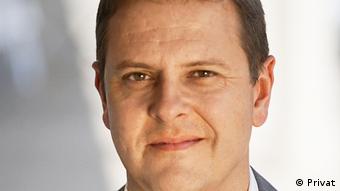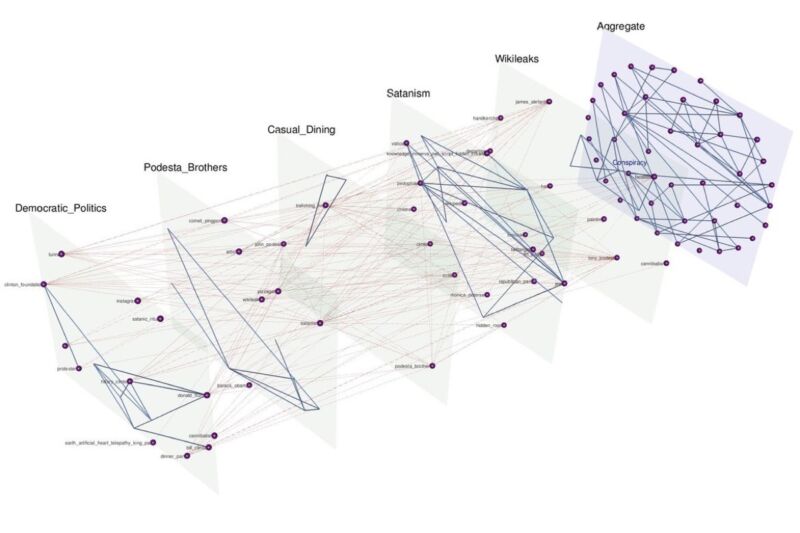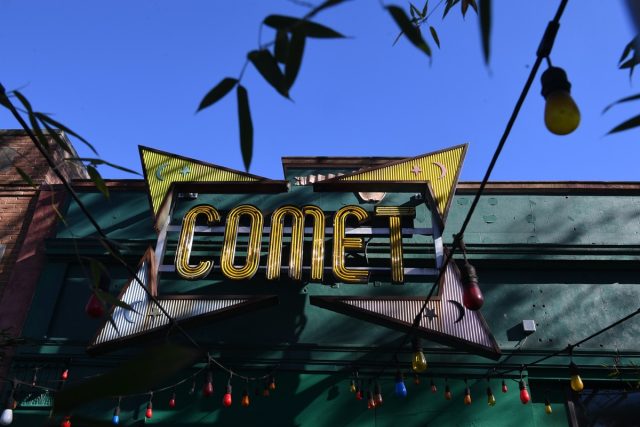By Michael Albert
Source: Originally published by Z. Feel free to share widely.

Media and individuals too often field too few questions about the systemic causes of trends and events. More often they ask about and study the membership of some rogue group even as they ignore the structure of government and corporations. How did this “fashion” come about? Where is it taking us?
A Conspiracy Theory is a hypothesis that some events were caused by the intractable secret machinations of rogue individuals. A prime example was, for example, to explain Iran-contra as the secret rogue actions of Oliver North and co-conspirators. Another conspiracy theory explained the hostage-holding in Carter’s last presidential year as the machinations of a “secret team” helping Reagan win the presidency. A conspiracy theory of Karen Silkwood’s murder would uncover the names of people who secretly planned and carried out the murder. Bending usage, we could even imagine a conspiracy theory of patriarchy as rogue men uniting to deny women status, or a conspiracy theory of the U.S. government as competing groups of rogue officials pursuing their own nefarious ends. And, then, more recently, well, take your pick…
Conspiracies do exist. Groups regularly do do things without issuing press releases and such secrecy becomes a conspiracy whenever their actions transcend “normal” behavior. We don’t talk of a conspiracy to win an election if the suspect activity includes only candidates and their handlers working privately to develop effective strategy. We do talk about a conspiracy if the resulting action involves stealing the other team’s plans, spiking their Whiskey Sours, or other exceptional activity. When a conspiracy cause’s some outcome, the outcome would not have happened had not the particular people with their particular inclinations and even hallucinations come together.
Conspiracy theories:
(a) Claim that a particular group acted outside usual norms in a rogue and generally secretive fashion.
(b) Disregard the structural features of institutions.
Personalities, personal timetables, secret meetings, and conspirators’ joint actions claim attention. Institutional relations drop from view. We ask, did North meet with Bush before or after the meeting between MacFarlane and Mr. X? Do we have a document that reveals the plan in advance? Do phone conversations implicate so and so? How credible is that witness? Conspiracy theories may or may not identify real coteries with real influence.
In an Institutional Theory, personalities and personal motivations enter the discussion only as effects of more basic factors. The personal actions that culminate in some event do not serve as explanation. Institutional theory explains phenomena via roles, incentives, and the dynamics of underlying institutions. An institutional theory doesn’t ignore human actions, but the point of an institutional theory is to move explanation from personal factors to structural factors. If the particular people hadn’t been there to do it, most likely someone else would have.
An institutional theory of Irancontra and the October surprise would explain how and why these activities arose in a society with our political, social, and economic forms. An institutional theory of Karen Silkwood’s murder would reveal nuclear industry and larger societal pressures that provoked her murder. An institutional theory of patriarchy explains gender relations in terms of marriage, the church, the market, socialization, etc. An institutional theory of government emphasizes the control and dissemination of information, the dynamics of bureaucracy, the role of subservience to class, race, and gender interests, etc.
Institutions exist. Whenever they have sufficient impact on events, developing an institutional theory makes sense. However, when an event arises from a unique conjuncture of particular rogue people and unique opportunities, while institutions undoubtedly play a role, it may not be generalized and an institutional theory may be out of place or even impossible to construct.
Institutional theories may or may not identify real relationships with real influence on the events they explain. Institutional theories:
(a) Claim that the normal operations of some institutions generate the behaviors and motivations leading to the events in question.
(b) Address personalities, personal interests, personal timetables, and meetings only as facts about the events needing explanation, not as explanations themselves.
(c) Organizational, motivational, and behavioral implications of institutions gain most attention. Particular people, while not becoming mere ciphers, are not accorded priority as causal agents.
To see the operational difference between conspiracy theory and institutional theory we can compare a smattering of the views of two critics of U.S. foreign policy, Noam Chomsky and Craig Hulet as they related to the war on Iraq thirty tears ago. Here is an indicative passage from each about that war (really one-sided massacre), which hopefully readers still know of.
HULET: “This isn’t about Kuwait. This isn’t about oil. It has nothing to do with those things. And it certainly doesn’t have anything to do with reinstalling a legitimate government [in Kuwait] when for the first time we’re trying to install a legitimate government which is a non-military despotism listed by Amnesty International as committing the same heinous crimes against his people [as Hussein]… What I am suggesting is that for the first time we’re going to expend American lives to put in a tyrant of only a smaller stature because of the size of his country…there is a foreign policy that is being orchestrated in violation of U.S. law, international law, and the U.S. constitution. Should that surprise anyone after Watergate, the Kennedy assassination?…
“Why should Americans die to restore a dictator invaded by another dictator? First it was to protect Saudi Arabia. Everybody now knows he [Hussein] had no intention of going any further than Kuwait. So they dropped that as a reason. They came up with the next one, that this is about oil. Then all of a sudden oil prices, right in the midst of the war, drop to $21 a barrel, which was where it was before the war. So it obviously can’t be about oil. So it can’t be our vital interests at stake. Is it about a legitimate government? If it’s about a legitimate government, then we’re putting back in power a despot under the Breshnev doctrine, not the Truman doctrine. The Breshnev doctrine being that we treat all nations as sovereign equalities regardless of how despotic they are, and we keep them in power. So for the first time George Bush is now acting out the Breshnev doctrine rather than installing a free republic or keeping a free people free. [There follows a long discussion of the U.S. holdings and influence of the Al Sabah ruling Kuwaiti family, followed by listener questions primarily focused on the efficacy of impeaching George Bush to which Hulet’s response is:] “It’s going to be up to the public whether or not George Bush–and I agree, it’s a ruling Junta–is impeached. It won’t be just up to Senators and Congressmen to make this decision. They won’t make the decision unless public opinion supports this kind of action.”
CHOMSKY: “If we hope to understand anything about the foreign policy of any state, it is a good idea to begin by investigating the domestic social structure: Who sets foreign policy? What interests do these people represent? What is the domestic source of their power? It is a reasonable surmise that the policy that evolves will reflect the special interests of those who design it. An honest study of history will reveal that this natural expectation is quite generally fulfilled. The evidence is overwhelming, in my opinion, that the United States is no exception to the general rule–a thesis that is often characterized as a ‘radical critique’… Some attention to the historical record, as well as common sense, leads to a second reasonable expectation: In every society there will emerge a caste of propagandists who labor to disguise the obvious, to conceal the actual workings of power, and to spin a web of mythical goals and purposes, utterly benign, that allegedly guide national policy… any horror, any atrocity will be explained away as an unfortunate–-or sometimes tragic–-deviation from the national purpose…. Since World War II there has been a continuing process of centralization of decision-making in the state executive, certainly with regard to foreign policy. Secondly, there has been a tendency through much of this period toward domestic economic concentration. Furthermore, these two processes are closely related, because of the enormous corporate influence over the state executive…”
The commonality often evidenced in these two thinkers is distaste for U.S. foreign policy. The difference is that Hulet generally understands policy as the preferences of particular groups of people–in this case, “a junta” and the Al Sabah family–-barely referring to institutions at all. Chomsky always understands the policies as arising from particular institutions–-for example, “the state executive” and corporations.
For Hulet, the implicit problem is to punish or “impeach” the immediate culprits, a general point which holds for all conspiracy theory. The modis operendi of the conspiracy theorist therefore makes sense when the aim is to attribute proximate personal blame for some occurrence. If we want to prosecute someone for a political assassination to extract retribution or to set a precedent that makes it harder to carry out such actions, the approach of the conspiracy theorist has relevance. But the conspiracy approach is beside the point for understanding the cause of political assassinations to develop a program to prevent all policies that thwart popular resistance. Conspiracy theorizing mimics the personality/dates/times approach to history. It is a casual sports fans’ or a gossipy voyeur’s view of complex circumstances. It can manipulate facts or it can present them accurately. When it’s done honestly, it has its place in a prosecutors tool chest.
For Chomsky, however, the problem is to discern the underlying institutional causes of foreign policy. The modus operandi of the institutional theorist would not make much sense for discovering which individuals conceived and argued for a policy, or who in particular decided to bomb a civilian shelter. To understand why these things happen, however, and under what conditions they will or will not continue to happen, institutional theory is indispensable and the motives, methods, and timetables of the actual perpetrators are beside the point.
Take the media. A conspiracy approach will highlight the actions of some coterie of editors, writers, newscasters, particular owners, or even a lobby. An institutional approach will mention the actions of these actors as evidence, but will highlight the corporate and ideological pressures giving rise to the outcomes. A person inclined toward finding conspiracies will listen to evidence of media subservience to power and see a cabal of bad guys, perhaps corporate, perhaps religious, perhaps federal, subverting the media from doing its proper job. The conspiracist will then at best want to know about the cabal and how people succumb to its will, etc. A person inclined toward institutional analysis will listen to evidence of media subservience to power and see how the media’s internal prganization, socialization processes, and the interests of its owners born of their institutional roles engender these results as part of the media succeeding at its job. The institutionalist will want to know about the media’s structural features and how they work, and about the guiding interests, how they arise, and what they imply.
The conspiracy approach to understanding media will lead people to believe that either:
(a) They should educate the malefactors to change their motives, or
(b) They should get rid of the malefactors and back new editors, writers, newscasters, or owners.
The institutional approach to understanding media may note the possible short term gains from changes in personnel, but will mainly explain how limited these changes will be. It will incline people
(a) Toward a campaign of constant popular pressure to offset the constant institutional pressures for malfeasance, or
(b) Toward the creation of new media free from the institutional pressures of the mainstream.
Conspiracy Theory and its associated personalistic methodology appeals to prosecutors and lawyers, since they must identify proximate causes and human actors. But why does it often appeal to people concerned to change society?
There are many possible answers that perhaps all operate, to varying degrees, for people who favor conspiracy theory. First, conspiracy theory is often emotionally compelling and the evidence conspiracy theories reveal is often useful. More, carefully unearthing detailed entwinements can become addictive. One puzzle and then another and another demands explanation. Conspiracy theory has the appeal of a mystery. It is dramatic, compelling, vivid, and human. Finally, the desire for retribution helps fuel continuing forays into personal details.
Second, conspiracy theories have manageable implications. They imply that all was okay once and that all can be okay again if only the conspirators can be pushed aside. Conspiracy theories therefore explain ills without forcing us to disavow society’s underlying institutions. Conspiracy theories allow us to admit horrors and to express our indignation and anger at them without rejecting the basic norms of society. We can confine our anger to the most blatant perpetrators. That government official or corporate lawyer is bad, but many others are good and the government and law per se are okay. That gun toting maniac in the elementary school or that rogue cop are bad, but the culture, the NRA, the police apparatus are okay. We need to get rid of the bad apples. But then all is well. All this is convenient and seductive. We can reject specific candidates but not government, specific CEOs but not corporations, specific writers, editors, and even owners of periodicals, but not mainstream media. We can reject some vile manipulators, but not society’s core institutions. We continue to petition the institutions to give us status or pay us.
Third, conspiracy theory provides an easy and quick outlet for pent up passion withheld from targets that seem unassailable or that might strike back. This is conspiracy theory turned into scapegoat theory.
It would be bad enough if endless personalistic attention to Irancontra, the October Surprise, Inslaw, assassinations, much less recent elections, and crazy delusional schemes, etc., were just attuning people to search after coteries while ignoring institutions. This was the effect, for example, of the many Kennedy Assassination theories of past decades. At least the values at play would be progressive and we could hope that people would soon gravitate toward real explanation highlighting more structural phenomena.
But the fact is, the values inspiring conspiratorial ways of trying to explain events have in recent years drastically diverged from progressive values. Even some sectors of left activists have become so hungry for quick-fix conspiracy explanations they gravitate toward any conspiracy claim, no matter how ridiculous.
Thus the field of conspiracy theorizing has become attractive and new entrants are no longer mainly progressive but often instead tilt toward reaction or downright fascism. The presentation of conspiracy theories has moved from little newsletters and journals to large audience radio talk shows and magazines and presidential campaigns and from identifying “secret teams” of CIA operatives to all-powerful networks of Arab financiers and worldwide Jewish bankers’ fraternities, not to mention liberal child sex traders. It is so ubiquitous it isn’t even called conspiracy theorizing any more. Now it is called electioneering. Now it is called journalism.
There is an ironic analogy here to some recent analysis of national Republican Party politics. In that arena, many journalists not long ago claimed that the Republican Party’s manipulations of race in prior years paved the way for David Duke by re-acclimating the public to racial stereotyping and increasing its appetite for more. Then Duke’s times led through Facebook and Twitter to Trump times, now leading to Santos times. In somewhat the same way, isn’t it plausible that the relatively huge resources thrown into progressive conspiracy writing, organizing, and proselytizing over the past few decades is now also coming home to roost? Of course, the changing times are partly responsible for growing public interest in conspiracies, but doesn’t past behavior by some progressives bear a share of responsibility as well?
Leftist institutional theorists generally ignore conspiracy theorists as irrelevant. To confront their arguments is to enter a miasma of potentially fabricated detail from which there is no escape. Nothing constructive emerges. But perhaps this view needs some rethinking. When Holly Sklar, Steve Shalom, Noam Chomsky or any of many other left analysts talked in the past about events, even about Iran-contra, say, or the October Surprise, they paid attention to proximate facts but also to the institutional context. That’s as it should be, but apparently it’s no longer good enough. Now, those who have an institutional critique may have two additional responsibilities. First, perhaps we should point out the inadequacy of left conspiracy theorizing even when it isn’t called by that name, showing that even at best it does not go far enough to be useful for organizers. Second, perhaps they should debunk and castigate rightist conspiracy theory, removing its aura of opposition and revealing its underlying racist and elitist allegiances.
Likewise, when progressive radio talk shows and left journals and magazines invite people to communicate with their public about world and national events, it is good to be sure the guest is coherent, has effective speaking or writing style, talks about the issues, identifies actors accurately, and knows about the relevant history. But that too isn’t enough. Fascists can fulfill these standards and still spout made-up statistics as if they were facts, make disgusting allegations about social groups as if they were objective commentary, and offer nothing at all about real institutional relations, while passing this whole mess off as a useful way to look at the world to understand and affect social events. Left media, even strapped as it is, should take responsibility for its offerings. People expect that if commentators appear on our shows and in our publications they have a degree of integrity, honesty, and sensitivity. We should not lend credence to right-wing garbage, whether it is blatant or so well concealed as to be civil but malicious. Even regarding progressive and left conspiracy theory, while it sometimes may uncover important evidence, left activists ought to always indicate its limits and augment it with institutional and contextual analysis.
Michael Albert
Michael Albert`s radicalization occurred during the 1960s. His political involvements, starting then and continuing to the present, have ranged from local, regional, and national organizing projects and campaigns to co-founding South End Press, Z Magazine, the Z Media Institute, and ZNet, and to working on all these projects, writing for various publications and publishers, giving public talks, etc. His personal interests, outside the political realm, focus on general science reading (with an emphasis on physics, math, and matters of evolution and cognitive science), computers, mystery and thriller/adventure novels, sea kayaking, and the more sedentary but no less challenging game of GO. Albert is the author of 21 books which include: No Bosses: A New Economy for a Better World; Fanfare for the Future; Remembering Tomorrow; Realizing Hope; and Parecon: Life After Capitalism. Michael is currently host of the podcast Revolution Z and is a Friend of ZNetwork.








